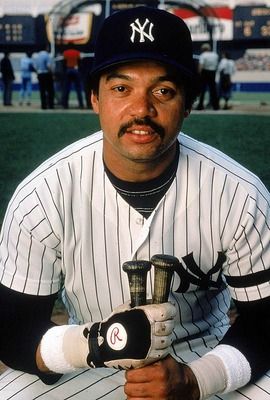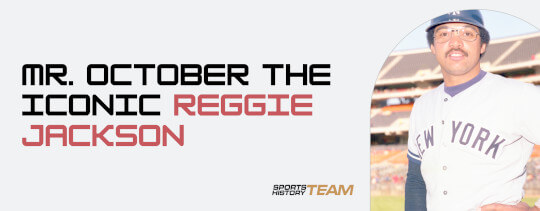Reggie Jackson is one of the most iconic baseball players in American history. Born in 1946 in Pennsylvania, he grew up to become one of the greatest athletes of his time. He was a powerful hitter and a master of clutch moments, earning him the nickname "Mr. October."
As a player, Jackson was instrumental in helping the Oakland Athletics win three consecutive World Series championships in the early 1970s. His most famous moment came in Game 6 of the 1977 World Series when he hit three home runs to help the New York Yankees win the championship.
But how did Reggie Jackson become the player that he is known as today? Here is a look at the history of a baseball legend you wish you could bet on in a real-money sportsbook like UFABET.
Early Life
Reginald Martinez Jackson was born on May 18, 1946, in Abington Township, Pennsylvania. His father, Martinez, was a tailor and a former second baseman, while his mother, Clara, was a nurse. As a child, Jackson was very active, playing baseball, football, and basketball.
He attended Cheltenham High School, where he excelled in all three sports. He was named an All-American during his senior year and was drafted by the Kansas City Athletics in the 1966 Major League Baseball draft.
Early Career – Minor Leagues
Jackson made his MLB debut with the Athletics in 1967. The 17-year-old was quickly recognized as a powerful hitter, as he hit 29 home runs in his first season. He continued to impress over the next few years, earning himself a spot in the All-Star Game in 1969 and 1970.
During the American League Championship Series in 1971, Jackson hit a crucial home run, helping the Athletics win the series against the Baltimore Orioles. Next year, the Athletics won the division again – but in the event, Jackson tore his hamstring, causing him to miss the rest of the season.
Nevertheless, Jackson was the hero of the team. As he repeated this feat in the 1973 World Series, he was named the MVP of the series, cementing his reputation as one of the best players in the league.
Rise to Stardom
After 254 home runs in nine years with the Athletics, Jackson moved to Baltimore Orioles. There, due to contract disputes, he only played for one season. It didn't stop him from breaking his personal records though. During that one season, he stole 28 bases and hit 27 home runs.
In 1976, Jackson finally changed his number from 9 to 44 and moved to the New York Yankees. Once again, he was met with controversy. While his reputation was still intact, his relationship with the team was complicated.
In a game against the Boston Red Sox, Reggie Jackson's fielding mistake led to an argument with his manager Billy Martin, which was televised and damaged their relationship. After a series of heated conversations, changes were made to the team, ultimately leading to Jackson's performance improving.
On September 14th, Jackson was responsible for the Yankees winning the Eastern Division title, beating Red Sox and Orioles, paving the way for a match against Kansas City Royals for the pennant.
Mr. October
Reggie Jackson's outstanding performance in Game Six of the World Series against the Dodgers earned him the nickname "Mr. October". He hit three home runs, each on the first pitch, off three different pitchers. With a total of four home runs in as many consecutive swings, he became the first player to win the World Series MVP award for two teams.
Jackson's scouting reports played a significant role in his success, and he credited Gene Michael and Birdie Tebbetts for their contribution.
Notably, Jackson's outstanding performance prompted rowdy behavior from fans during the game, with some of them throwing firecrackers out near his position. Nearing the end of the match, they were already on the field, making Jackson body-check some of the fans in order to score the winning run.
Later Career
The following seasons were stirred up with ups, downs, and controversy. After a manager, Billy Martin lost his job and Bob Lemon replaced him, the team steadily moved towards the next pennants in 1978.
Jackson was at the center of events in the World Series against the Dodgers. The Dodgers won the first two games, but the Yankees won Game Three thanks to Nettles' fine defensive plays. In Game Four, Jackson was involved in a controversial play on the basepaths. Despite the Dodgers' protests of interference, the umpires allowed the play to stand, and the Yankees won the game in the tenth inning.
Reggie Jackson New York Yankees Pinterest
Pinterest
Needless to say, this was a low point in Jackson's career. Although it was a difficult time, he continued to be productive and eventually reached the milestone of 500 home runs in 1984 at Anaheim Stadium playing for California Angels in a match against Kansas City Royals.
In 1987, Jackson returned to the A's on a one-year contract and wore his now iconic number 44 instead of number 9. He announced his retirement at the end of the season at the age of 41. In his final game, he hit a broken-bat single up the middle but the A's lost to the White Sox 5-2. He was the last player in the majors to have played for the Kansas City Athletics.
Retirement & Legacy
Jackson retired from baseball at age 41 after the 1987 season. In his 21-year career, he had 563 home runs, 1,702 RBIs, and a .262 batting average. He also holds many records, including the most home runs in a single World Series and the most consecutive games with a home run.
In 1993 he was inducted into the Baseball Hall of Fame on his first ballot. Today Jackson is remembered fondly as one of the greatest hitters in history who truly embodied what it meant to be a clutch player. He will live on forever in the hearts of baseball fans everywhere and he will always be remembered as "Mr. October".
Sports Team History looks at the history and logo of each professional sports team to have ever existed from the MLB, MLS, NBA, NCAA, NFL, NHL, Premier League, WNBA, XFL, ABA, AAF, or USFL.
One of our partner sites is Sports Logo History, a community of sports logo enthusiasts who enjoy each team’s logo history. In addition, we have added Sports News History to our sports history websites. 24/7 non-stop sports news that's worth knowing. Finally, the premier sports team marketplace for your favorite team or college, with thousands of items for you to peruse at Sports Market History.

